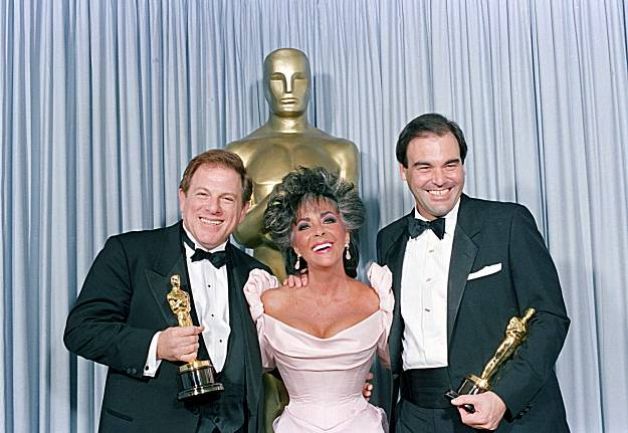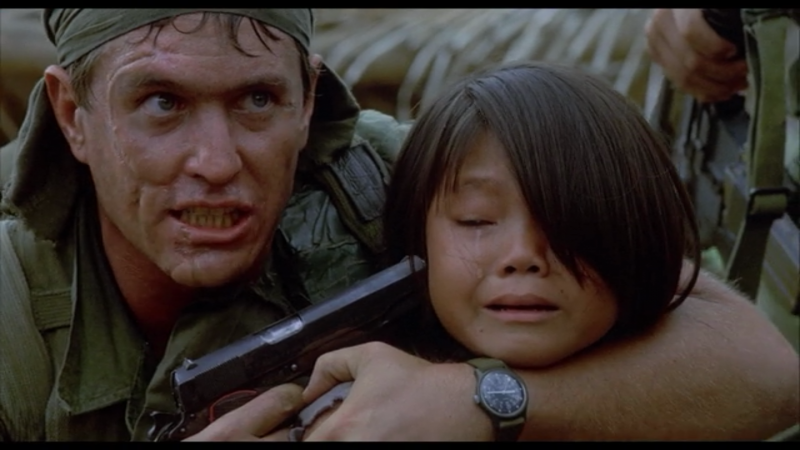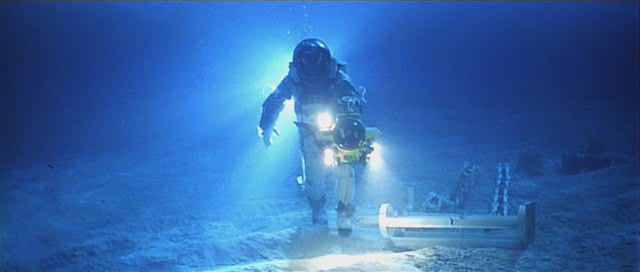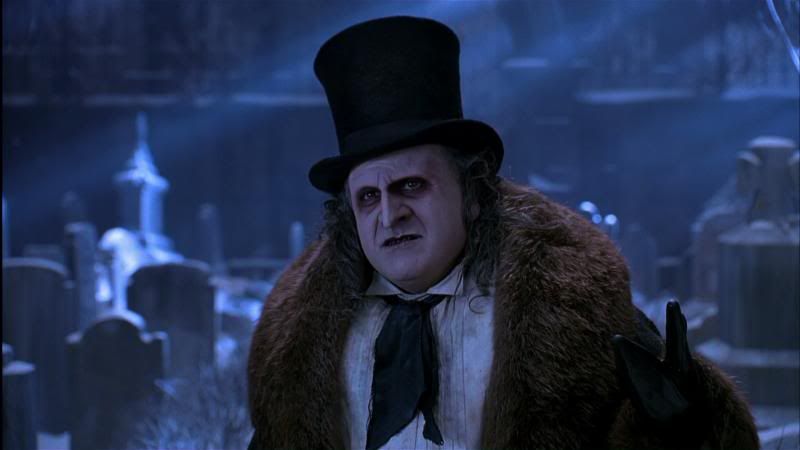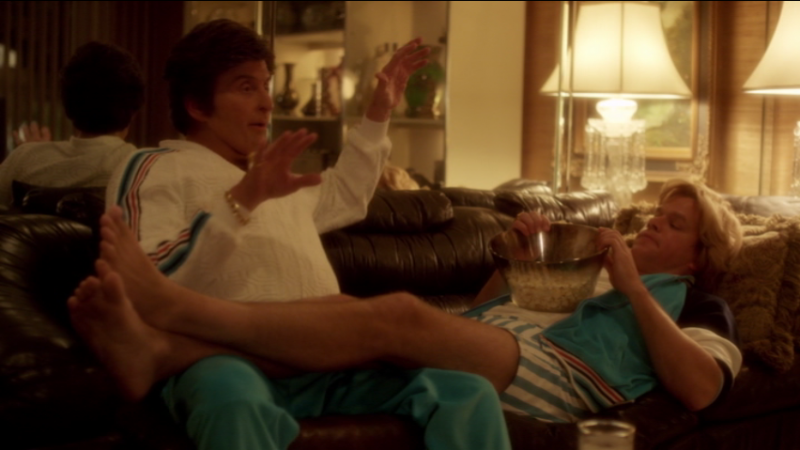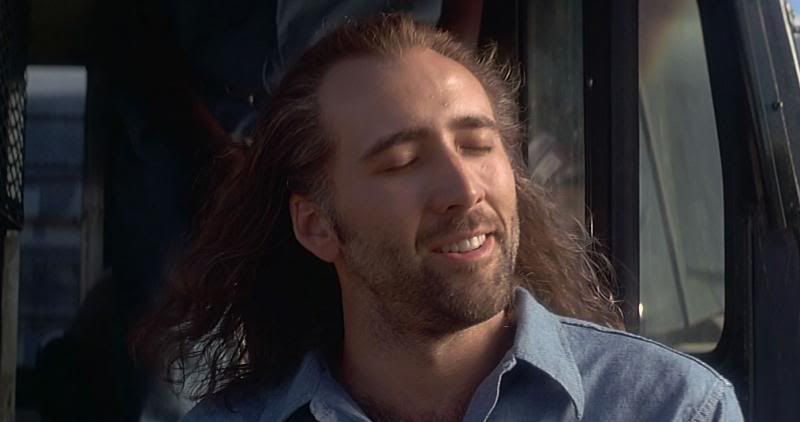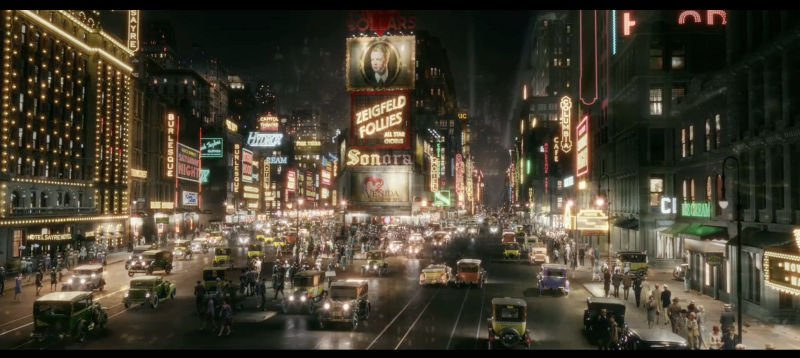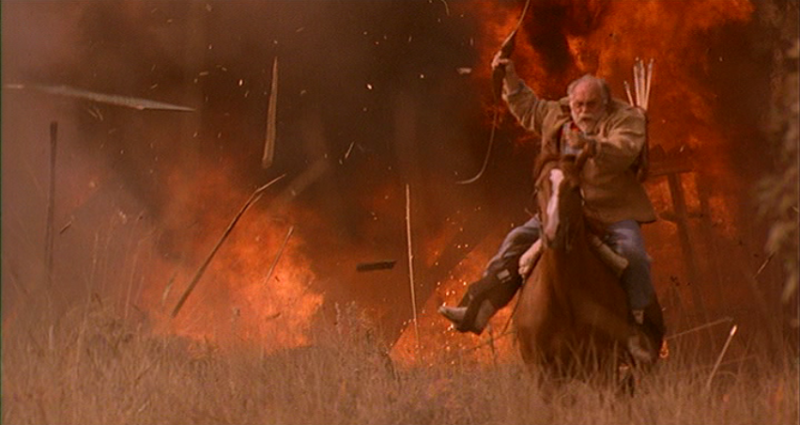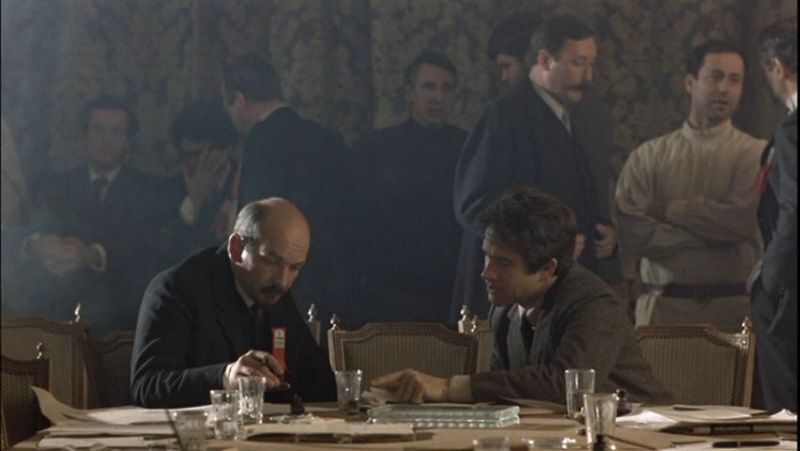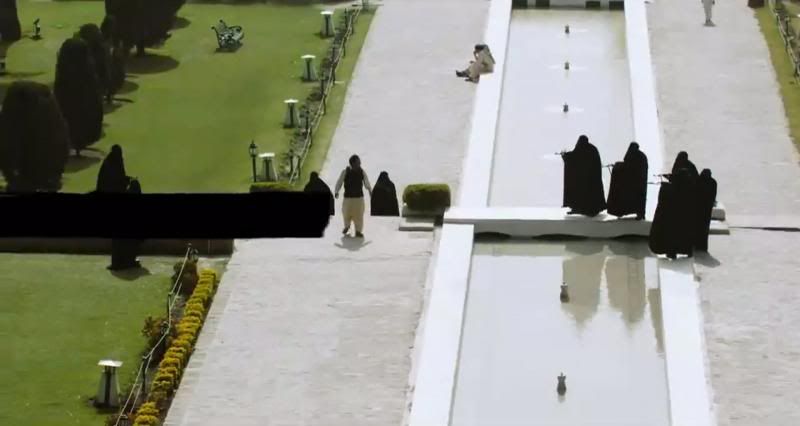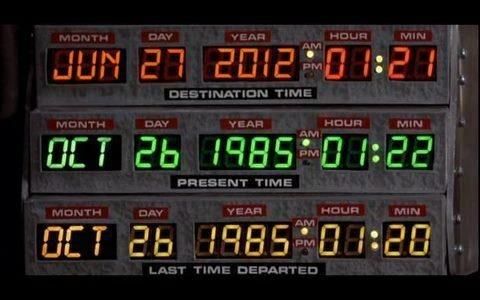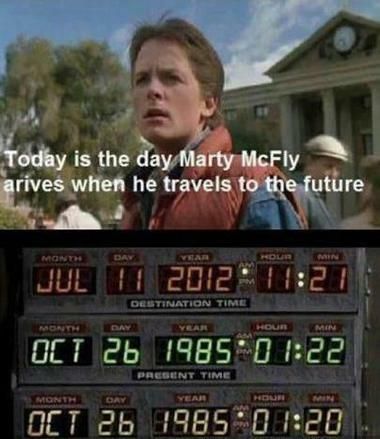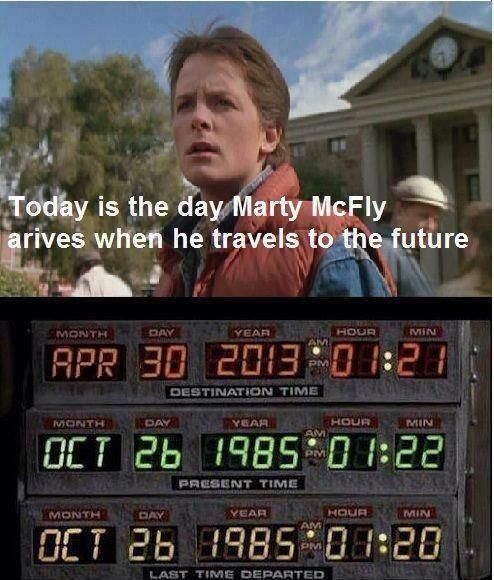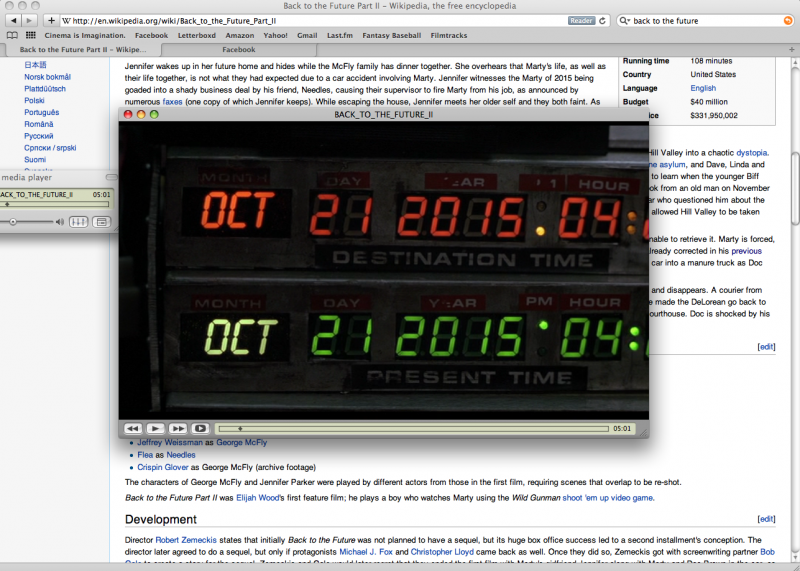One of my many on-going film viewing projects is to eventually see all the Academy Award nominees for Best Picture and Best Director. I have watched or re-watched these films fairly close together and then placed a value judgment on what I saw cinematically. First up is 1980.
BEST PICTURE
WINNER: Ordinary People (dir. Robert Redford)
When the notes of
Pachabel’s canon overlay the idyllic autumn images of a posh Chicago suburb, I
figured this was establishing an ironic counterpoint to the story of a family
that seem to have it together yet are in the midst of falling apart. While Pachabel’s familiar theme is
taken as indirect comment at first, it is transformed over the course of the
movie to express the aching of an idealized memory felt by all the characters
in the Jarrett home. Pachabel’s
canon is finally subverted, but only at the end, as it quietly highlights the
weight of Beth’s leaving. There is
no irony in Redford’s direction and he avoids stylistic flourishes apart for
the flashes of memories that haunt Conrad and Calvin. In a film full of great performances, Timothy Hutton is the
easy standout as the most fully seen and realized character and Hutton is
capable of finding every note needed to express not just sadness and apathy but
the subtle arc of a teenager growing up under the weight of past burdens. It is inexplicable why he was nominated
as a supporting role, when he is quite clearly the main character and narrative
catalyst. But even the small parts
are well cast and played with just enough depth to keep them from being ciphers
serving the main narrative.
Elizabeth McGovern is worth mentioning, as she fills her role with
stumbling angst and genuine charm. The movie is not anything I would consider a masterpiece but I can’t
fault the Academy for rewarding a well-made character piece.
Coal Miner's Daughter (dir. Michael Apted)
Slow and steady wins the
race. The movie never gets ahead
of itself, never sprints toward the money and stardom of Loretta Lynn’s story,
but slowly builds up its characters and the atmosphere of poverty, station and
Southern tradition from which these characters come, from whose ranks they will
break when their ship comes in.
Spacek deservedly nabbed all the acclaim, but Tommy Lee Jones is, as
much as he can be, her equal, and creates an amiable and loyal yet conflicted
husband who is afraid he is a little too socially ahead of the curve and not
sure how he feels about that. It’s
impossible not to see the film as an examination of gender roles as both Patsy
Cline and Loretta Lynn have escaped the traditional expectations only because
of the number of eyes that watch them sing. Finally, by the end, what I feel we are witnessing is the
high cost of fame.
The Elephant Man (dir. David Lynch)
This is a film that will
live or die to an audience by the pathos garnered by Hurt’s performance, a
balance that is made both easier and more difficult by the makeup that mimics
the condition of the historical Joseph Merrick. Lynch’s great achievement in the first half of the film, is
in making me approach Merrick emotionally in all the ways Treves does – first
as a curiosity, then with pity, then as a macabre scientific spectacle, then
anger over the circumstances, frustration over the limitations of
communication, and then finally, sympathy that segues into affection. I felt all of these things for Merrick. Hurt’s ability to find empathy with the
vocal limitations and the slight gestures of his body kept this a very human
drama. I found myself moved by
Merrick’s generosity and tenderness in a way it would be easy to take for
granted in many other people who had not lived through such abuse due to their deformities. It feels like an extension of the
Kaspar Hauser stories, one where it is mind-boggling to consider how someone
could have not only lived through such mistreatment and limitations, but also
to have a heart big enough to embrace others afterwards. Though flawed in the vignetting of
scenes and the clumsiness of the last act, it is a film that resonates very
deeply with me.
Raging Bull (dir. Martin Scorsese)
A completely
unsentimental neo-realist drama couched in between gloriously stylized boxing
matches, beginning mythically with injustice before ending in the spiritual
death of Jake LaMotta. Scorsese
has filmed one of the great modern tragedies, only he presents a character so
universally flawed and despicable that it is hard to do much more than revere
the filmmaking and bemoan LaMotta.
But if taken as a portrait of total depravity and human degradation
through pride and violence in both heart and life, then Raging Bull can be viewed as not only a technical
masterpiece, but also one of the great films of what a life looks like
completely absent of grace.
Tess (dir. Roman Polanski)
Tess is a good movie. It is easy to take for granted the things it does really
well (sense of place, family interactions, empathy) because of how effortless
it all seems, but it also never achieved anything more than that. And in a year where the other four film
nominated were buoyed by career performances by John Hurt, Timothy Hutton,
Sissy Spacek and Robert De Niro, Nastassja Kinski, though good, just doesn’t
have the same range as the other actors above her and is given a more ambiguous
character to play. The film has
its moments, but in comparison, can’t really stand against the other films in
the category.
MY PICK: Raging Bull
The Academy chose five good
films this year and even though 1980, in retrospect, has become the year Raging
Bull DIDN’T win best picture. Ordinary
People is still a decent choice,
even if I wouldn’t have chosen it.
I would take Raging Bull
first, then Coal Miner’s Daughter,
with The Elephant Man and Ordinary
People being about equal in my
book, and Tess falling in
last place (I consider it a 1979 movie anyway, due to its world premiere being
in October of 1979).
BEST DIRECTOR
WINNER: Robert Redford (Ordinary People)
The compliment I can
give Robert Redford’s directorial debut is that his direction does not get in
the way of the characters. That
may sound like faint praise but it is really a wonderful achievement. Not surprisingly for
actor-turned-directors, he gives his actors some juicy roles and lets them at
it. Redford’s lack of pretension helps
him keep the film from getting too bogged down in some sort of psychological
ellipsis, but his lack of interest in planting the story within any sort of
social context besides what the narrative affords keeps the film from becoming
something truly great. I don’t
mean to sound cynical, but it feels like he won the award more for not screwing
up than he did for making a great film.
David Lynch (The Elephant Man)
It would be easy to
blame Lynch for the things that don’t work for me about The Elephant Man – the heavy vignetting of scenes, the clumsiness
of the last act – but I would have to completely discount the startling first
act, the quiet insights into Merrick’s psyche and some of his visitors and the
incredible performance of John Hurt.
Lynch avoids making the film a grand spectacle, and that is
praiseworthy, and continues as one of the pioneers of incorporating
expressionistic sound design in Hollywood films, but he also can’t help himself
at times and feels uneasy about getting too close to his characters, especially
Dr. Treves. It is a fine effort,
but not without its faults.
Roman Polanski (Tess)
Tess was obviously a personal labor of love for
Polanski (he dedicated the film to his late wife Sharon Tate, who had given him
the book, hoping he would make the film someday), but he has so forsaken the
kinetic energy of his earlier films that by this point he seems like a
completely different filmmaker with the same name. Though he shot the film in France, Polanski finds the right
landscapes to read as Britain and he finds colorful supporting actors to fill
out the film. If there is one
thing that gets in the way of things, it is his blind love of Nastassja Kinski
and his desire to build her the defining moment of her career. Maybe he did that, but I don’t think it
was nearly as defining a moment as he had hoped.
Richard Rush (The Stunt Man)
There must have been a
contingent within the Academy that really loved this film because it seems such
an odd choice to nominate Richard Rush, who, before this award, had done very
little and has since basically dropped off the face of the earth. But Rush’s film is interesting, if
convoluted (which is part of the point) and frustratingly inconsistent, with
some of the greatest scenes in American cinema that year (the opening sequence,
the ice cream meltdown scene) and yet never finding the right rhythm overall or
undecided as to which side of the reality vs. illusion fence it wants to land
on. I can say that Rush made a very
strange hugely entertaining movie, and that’s worth something, but I don’t see
this as one of the five great directorial efforts of 1980.
Martin Scorsese (Raging Bull)
Scorsese made a deeply personal film
about someone quite different than himself; he synthesized techniques from the
French New Wave, Italian Neo-Realism, and Hollywood’s Golden Age into a film
that would never look like this if Scorsese was not behind it. It is easy to praise Raging Bull for its bold stylization, but one should not
overlook the performances that build upon Brando’s foundation toward a raw
naturalism. Also, though some
consider the unsentimental character to be a detriment, Scorsese should be
applauded for not giving in to the urge (that I can only assume had to have
been there at various times) to make Jake LaMotta more likeable or
relatable.
MY PICK: Martin Scorsese
The director category nearly mirrored Best Picture, with Richard Rush being nominated over Michael Apted. Now, with the benefit of hindsight bringing the lasting worth and influence of these films to the fore, Scorsese is the obvious choice, if only for his technical achievement. And judging by the AFI Top 100 Movie List (Raging Bull is #4), if the Academy did it over again today, Scorsese would probably walk away with the statue.
